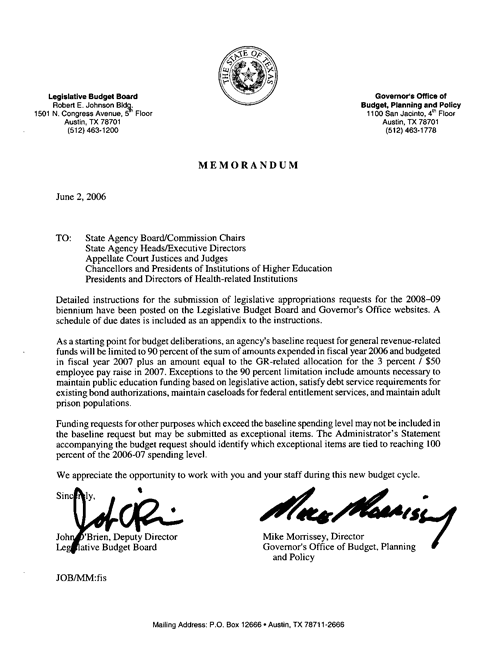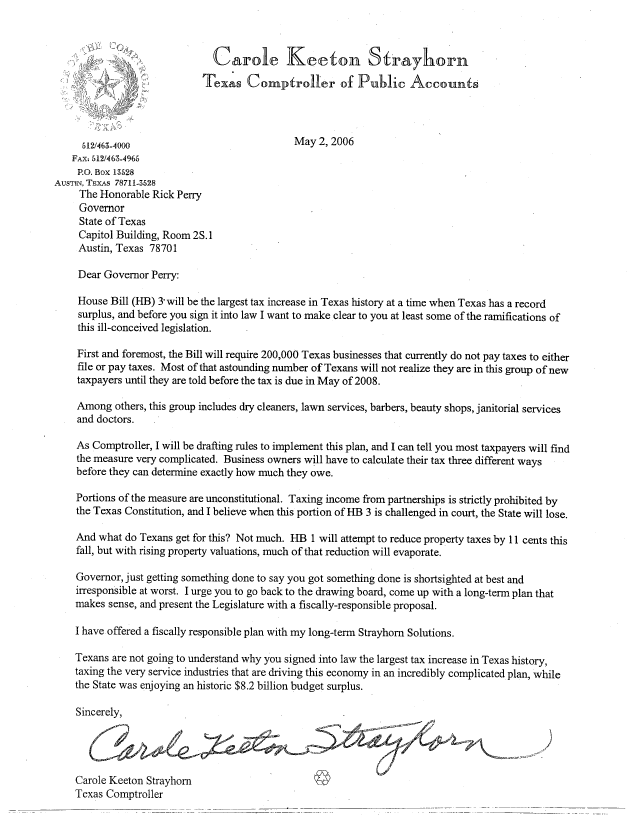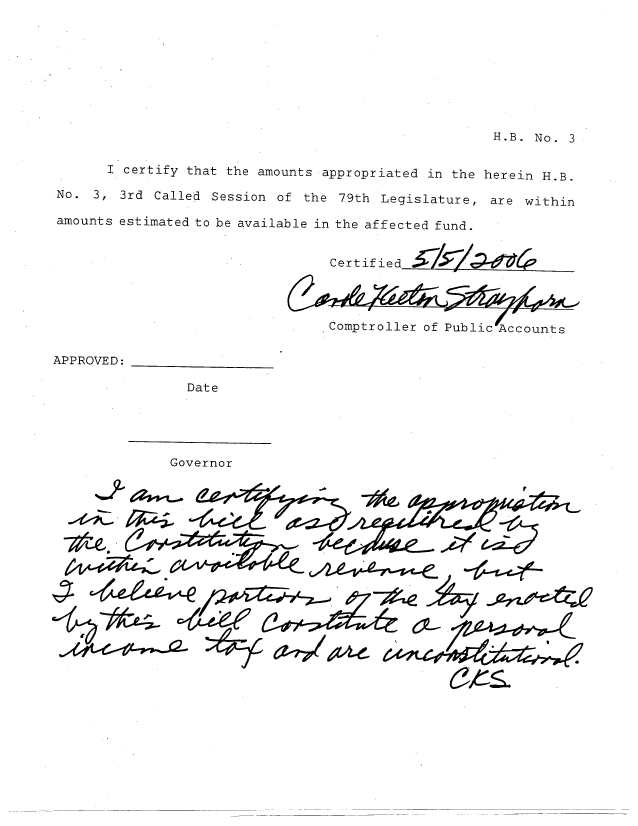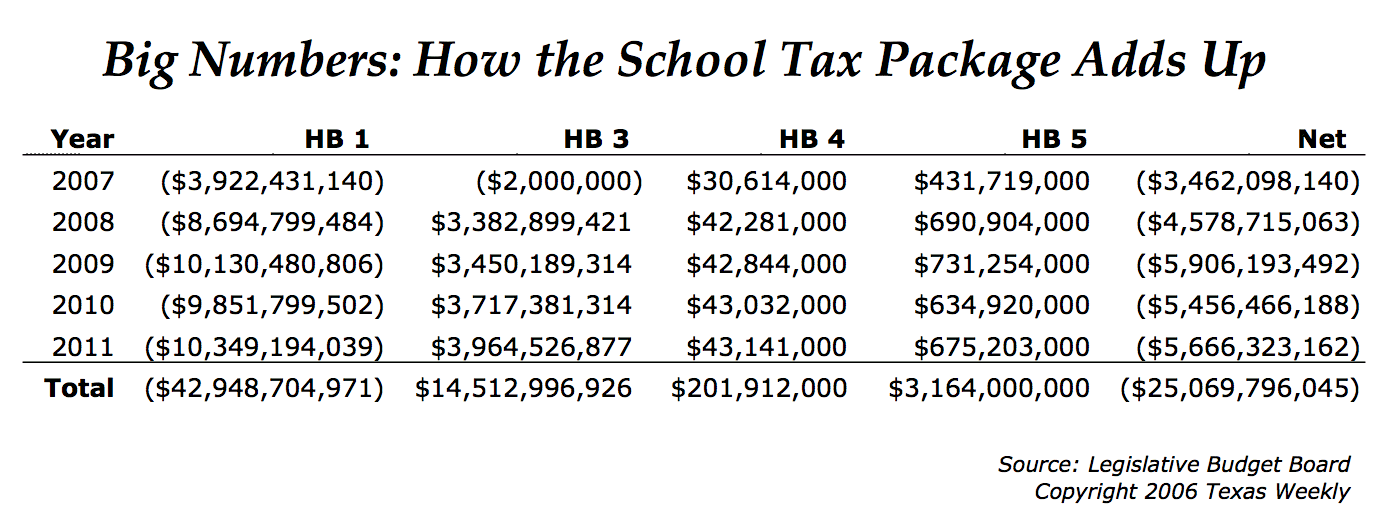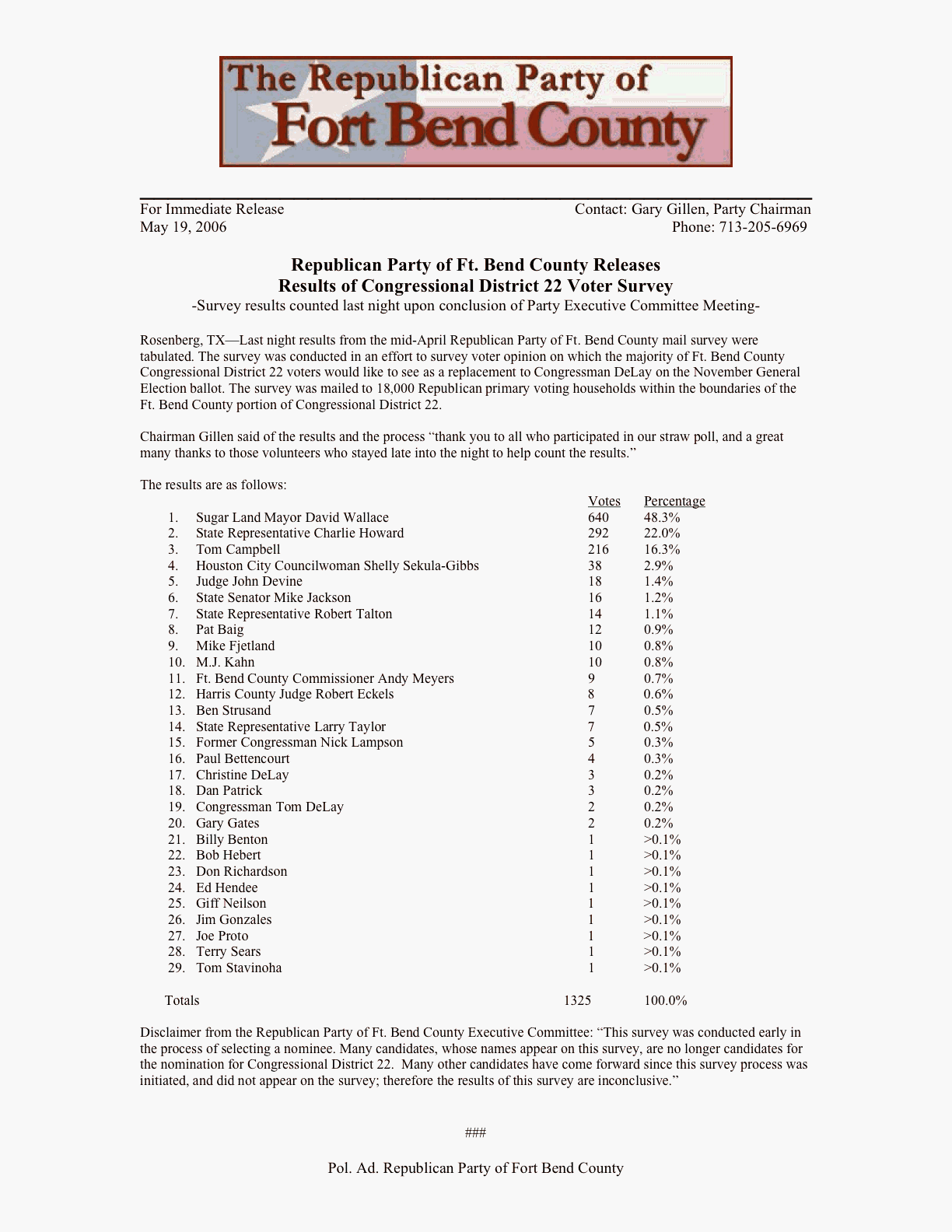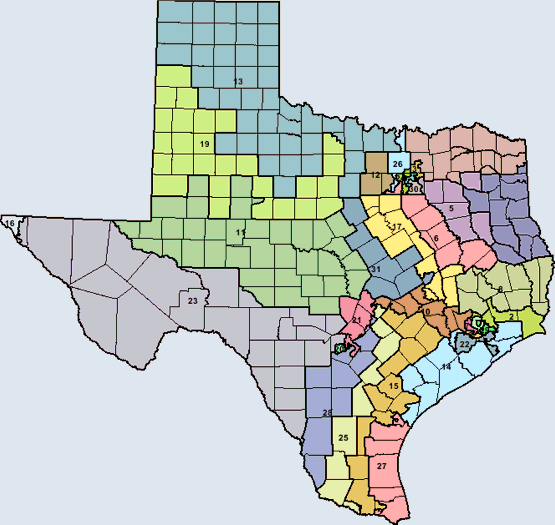Former Gov. Ann Richards, an iconic Texas Democrat known for her lashing wit, her crown of white hair, and her sheer charisma, succumbed to the esophageal cancer her doctors discovered earlier this year. She was 73.
She was a trailblazer, a populist whose tenure shook the culture of state government and the people and outside institutions that were accustomed to having their way with it. She opened the most powerful offices in state government to unprecedented numbers of women and minorities. Ethics reforms came unstuck and got into law, partly because of her support. Insurance regulation was briefly wrestled away from an industry that historically wins most of its battles with state government. Environmental regulators tightened up. And she appointed a string of women, Hispanics, Blacks, Asians and others to the state's boards and commissions who hadn't been there in big numbers before. Compared to her predecessors from both parties, she nearly doubled the numbers of appointments that went to people in those groups.
Richards was one of those rare people you know will be in the history books before you know everything that will be written about them in those books. Richards was the second woman elected governor in Texas (Miriam "Ma" Ferguson is usually characterized as a stand-in for her husband, James "Pa" Ferguson, for two terms in the 1920s and 1930s). She held off a Republican tide that eventually overtook Texas politics. And she was an inspiration to Texans — a personification of the state — even as she was turned out of office by voters.
"Ann Richards was the epitome of Texas politics: a figure larger than life who had a gift for captivating the public with her great wit," said Gov. Rick Perry in a statement. "She was an endearing and enduring figure in Texas politics. She paved the way as a leader and a role model for women who aspire to the highest levels of leadership. Anita and I are saddened by a loss that will be felt by many. Ann Richards left Texas a better place."
Richards was active in Democratic politics for years before running for county office in 1976. She won the state treasurer's job in 1982. She came on the national scene through the TV screen, where her speech at the 1988 Democratic National Convention was played over and over: A Texas woman taking apart a Texas presidential candidate — George H.W. Bush — with her quicksilver tongue. "Poor George," she cried. "He can't help it. He was born with a silver foot in his mouth."
Two years later, she was at the center of a whirlwind of a governor's race, with seven major candidates from the two major parties banging on each other for the right to head Texas government. Of the bunch, she alone had a national following.
Richards, then the state treasurer, battled former Gov. Mark White and Attorney General Jim Mattox through a rough primary, then defeated Mattox in a runoff that was remarkably rough even by the standards of remarkably rough Texas politics. Richards turned her recovery from alcoholism into a political asset, talking about it openly and deflecting attacks during that race — most of them from Mattox — that were aimed at personal problems she had left behind. He accused her of using cocaine and other illegal drugs; she answered that she had avoided "mind-altering" substances for ten years and wouldn't go beyond that.
Republican Clayton Williams of Midland had an easier time in his primary, besting Secretary of State Jack Rains, former U.S. Rep. Kent Hance and Dallas attorney Tom Luce without a runoff.
The resulting "Claytie and the Lady" race drew national attention, with two large personalities battling for control of an increasingly Republican state. The state had already gone for the GOP in presidential races, and it would, in 1990, elect two Republicans to statewide office, breaking the Democrats' hold on Texas government (they were Rick Perry and Kay Bailey Hutchison). A regular refrain in East Texas underlined Richards' problem. Voters, especially but not exclusively men, would say they weren't sure the state was ready for "a petticoat governor."
But Williams blew a big lead with ill-timed gaffes. He compared bad weather to rape and suggested a victim "lay back and enjoy it." He refused to shake Richards' hand, after his staff alerted reporters that "something was going to happen." He told reporters that in the contest, he'd "head her, hoof her, and drag her through the dirt" — terms familiar in the corral but not on the stump. And on the Friday before the election, the wealthy West Texan sealed it, volunteering a deadly answer to a softball question by saying he hadn't paid income taxes in 1986, when he was losing money in the oil patch. Richards capitalized on his goofs. That Friday night — just in time for TV news to catch it — she went in front of a union hall audience with this line: "Claytie didn't pay taxes in 1986. Did you?" What was left of his advantage disappeared. Richards ended up in front, with just under 50 percent of the vote (a Libertarian snagged the rest).
Richards had a real talent for tying government and politics to the lives of voters and citizens. For reporters, she was pure platinum, good for a quote even when she was dodging a question. She backed the lottery — originally a Mattox idea — to limit the size of a tax bill passed to balance the state budget. Richards scratched off the first Texas Lottery ticket at the now defunct Polk Feed Store in Southwest Austin, and captured the essence of the game (and made it an easy day for headline writers) when she saw the result: "Oh Rats." Another of her most famous lines came from that speech in 1988, when she encouraged women to get into public life. "Ginger Rogers did everything Fred Astaire did. She just did it backwards, and in high heels."
She was nuts about movies and Port Aransas, and always seemed available to talk to kids or do something for them. Austin's school district will open a school for girls next year — the Ann Richards School for Young Women Leaders. She had hoped to be at the door when it opens a year from now to welcome the first class.
She was well-liked, but she was also tough. Enough so that people who'd crossed her joked about it, after they recovered. An Austin theater chain runs a short film before movies telling people not to talk. It features Richards, a regular patron, tossing a loudmouth from the theater. The tagline: "Don't talk during the movie, or Ann Richards will take your ass out."
She had some losses in office, too. Her proposed fix to the school finance system was rejected by voters. A couple of her highest profile appointees — Lena Guerrero and Bob Krueger — were disappointments. Guerrero lost her spot at the Texas Railroad Commission after admitting she'd lied about having a college degree. Krueger's political career ended in a special election for the U.S. Senate seat he'd been keeping warm: Kay Bailey Hutchison swamped him and remains in that office to this day. Richards warred with then-Lt. Gov. Bob Bullock, alternating alliance and enmity with a fellow Democrat who later became a mentor to her successor.
In 1994, she was knocked off by George W. Bush, who did six years in office in Texas before winning the presidency. She was more popular at the time of her defeat than any Texas governor had been in decades, but voters weren't as happy with the job she was doing. A couple of issues gave fuel to her opponent, especially her veto of legislation that would allow Texans to carry concealed handguns. Like the petticoat line of four years earlier, the gun line was everywhere. And it gave some wavering voters another reason to seek change. They voted for Bush.
After she left office, she lobbied for a Washington, D.C.-based firm and then signed on with Austin-based Public Strategies Inc., where she shuttled between Austin, Washington, and New York City. She was a popular speaker and a frequent guest on TV talk shows, and an advisor to lots of political (and other public) people and to groups who sought her counsel.
Years after leaving office, she summed things up: "In looking back on my life, I could of course say the predictable thing — that the greatest thing I've ever done is bear my children and have grandchildren, and all that kind of stuff.
"But the reality is that the greatest part of my life was the opportunity to be in public service, to make a difference for the community I live in, for the state that I love, to be able to try to make things better, whether they turned out in the fashion I expected them to or not."
"Sometimes it's serendipitous: Good things happen accidentally. But they're not going to happen unless well-meaning people give of their time and their lives to do that."
Richards' body will lie in state this weekend in the rotunda of the Texas Capitol. Services are set for Monday at the Frank Erwin Center at the University of Texas — that's the basketball and special events venue, to give you an idea of the size of the thing. She'll be buried at the State Cemetery after a private graveside service.
Glenda Dawson, 1941-2006
Rep. Glenda Dawson, R-Pearland, part of the Republican wave that put the GOP in the House majority for the first time in modern history in 2002, died at the John Sealy Hospital in Galveston.
Dawson, a well-liked teacher for three decades before running for the House, was 65. The school district she served named an educator's award for her. And she was an advocate for organ transplants, among other things; she herself was the beneficiary of a kidney transplant years ago. She apparently died from an infection.
She upset then Rep. Tom Uher, D-Bay City, one of the longest serving members of the Legislature, in that 2002 election. She won reelection in 2004 and was the favorite in this year's contest. She was part of a group of Republican candidates helped by a $190,000 swap between Texas Republicans and national Republicans, who allegedly exchanged that amount in non-corporate contributions for the same amount in corporate money. The corporate money was verboten in Texas elections; the money that came back in exchange was legal. And Dawson properly reported all the money she received; the questions raised were raised about the contributors and the money-changers in that deal — not Dawson and the other six candidates.
House Speaker Tom Craddick and Gov. Rick Perry both issued statements of condolence. "She was a wonderful colleague, a warm friend and a great representative to the people of District 29," Craddick said. "She will be sorely missed by all."
She'd have faced Dr. Anthony Dinovo, D-Pearland, in November. The law allows a political party to replace a candidate who dies, but it's too late in the election year to do that in this case. Her name will remain on the ballot and if she wins, there will be a special election to fill the vacancy. In that case, the winner of the special election would take office in January.
Kinky TV
Independent gubernatorial candidate Kinky Friedman hit the TV trail with two new ads that are showing in 14 cities around the state.
The first of the two ads, called "Good Shepherd," shows Friedman inside and outside at his Utopia Animal Rescue Ranch in Medina. Here's the script, all read by the candidate himself while a guitar plays quietly in the background:
"Folks, I heard and old-time preacher read from the Book of John the other day. He said the Good Shepherd knows and recognizes his own and his own know and recognize him. And when the wolves come, the hired hands flee. But the Good Shepherd stays. Folks, we don't need a politician as governor anymore. We need a Good Shepherd. I want to be your Good Shepherd. I'm Kinky Friedman and that's why I'm running for governor of Texas."
In the second commercial, called "Clean Energy, Clean Government," Friedman is sitting in an idiosyncratic office. Again, he's the voice talent for the spot, and there's a soft guitar playing underneath his voice. The script:
"Look, I'm 61 years old. Too young for Medicare, and too old for women to care. But I care about what's happened to Texas. For the first time in history, Texas is importing energy. Now that ain't right. Folks, it's time for a change. Remember: There's a difference between a politician and a statesman. A politician's thinking about the next election. A statesman's thinking about the next generation. I'm Kinky Friedman, and that's why I'm running for governor of Texas."
The Friedman camp is quite a bit more open about their TV buy than the competition, saying the spots will run 5,000 times on cable and broadcast stations in 14 television markets in the state, including all but one of the big ones — Austin. Laura Stromberg, the campaign's press secretary, says that's because resources are scarce and the candidate is already well-known in the state capital. She didn't say what the campaign is spending on the ads or how long they'll run.
Horse Race Fodder
The monthly Zogby/Wall Street Journal Battleground States Poll has U.S. Sen. Kay Bailey Hutchison under 50 percent but still ahead of Democrat Barbara Ann Radnofsky of Houston. The poll puts Hutchison at 45.2 percent and Radnofsky at 36.8 percent; a month ago, they had them at 61 percent and 31 percent, respectively. And this month's poll includes a strong showing by Libertarian Scott Jameson, the favorite of 7.1 percent of the respondents.
In the Guv's race, they've got Republican Rick Perry slipping to 30.7 percent, followed by Democrat Chris Bell at 25.3 percent, independents Kinky Friedman at 22.4 percent and Carole Keeton Strayhorn at 11.1 percent, and Libertarian James Werner at 2.6 percent. At one point earlier this year, they had Perry 20 percentage points ahead of the next-best candidate. The poll's got a 2.9 percent margin of error. They did the survey from August 29 through September 5. And they have lots of detractors who say the people being polled are self-selecting — they sign up to be surveyed — and skew the results away from reality.
Here's another one, then. A new Rasmussen Poll on the governor's race has Perry at 33 percent, Strayhorn at 22 percent, Bell at 18 percent and Friedman at 16 percent. Perry's "favorables" fell under 50 percent, to 48; Strayhorn's, previously below 50, rose to 53. Detailed results are open only to their subscribers at the moment; they generally open the results to the hoi polloi after about a week.
The people vs. The People
In HD-11, the Republican candidate is touting upcoming endorsement and fundraising visits from Gov. Rick Perry and Lt. Gov. David Dewhurst while the Democrat is showing off a poll that says Perry's not popular enough there to offer the GOP's challenger a ride on his coattails.
Pollsters for Rep. Chuck Hopson, D-Jacksonville, say he's ahead of Republican Larry Durrett, R-Jacksonville, by a 55-28 margin (or why would they show us the poll, right?). The Libertarian in the race, Paul "Blue" Story, of Henderson, wasn't mentioned in the poll memo.
Hopson, according to 300 people surveyed by the Florida-based Kitchens Group in mid-August, is better known and has a favorable-to-unfavorable ratio of 6-to-1. Durrett's, they say, is 2-to-1, which is respectable (particularly if you've seen numbers for the top four candidates in the race for governor).
Perry, they say, is the favorite of 40 percent of the voters in the district. The pollsters — did we mention this memo was written for persuasive purposes? — contrast that with the popularity of the George W. Bush at the top of the ticket two years ago. To be fair, you'd have to blend in numbers (which we don't have) for U.S. Sen. Kay Bailey Hutchison, who'll be at the top of the ticket and is leading in statewide polls. She's been popular in that part of East Texas in past years.
Durrett's not laying down. Perry's coming in for an endorsement, and Dewhurst was listed as the headliner for a fundraiser this week (Thursday). Durrett touted that last one as Dewhurst's only appearance this year for a legislative candidate. Sen. Todd Staples, who's running for Texas Agriculture Commissioner and who used to hold that House seat, is also working for Durrett. Perry will drop in next week (Monday) to make an endorsement and to headline another fundraiser. The Dewhurst deal is in Cherokee County; the Perry deal is in Rusk County.
The High Price of Higher Education
Texas colleges got an "F" on affordability on the latest biennial study from the National Report Card on Higher Education. Their diagnosis is scary: "Texas’ underperformance in educating its young population could limit the state’s access to a competitive workforce and weaken its economy over time." They say the state's dropout rates are improving but remain higher than in other states. And they say the higher number of high school degrees hasn't increased the flow of students going on to college.
The affordability is figured by taking the cost of college less financial aid and dividing it into average family income. The numbers are daunting: Four year public schools cost 30 percent of the average family income in Texas; private schools cost 66 percent of the average family income each year. National averages are about half that. And the average U.S. student borrows $2,619 annually to pay for school; the corresponding Texas number is $3,541 per year.
A separate report — the 2005 annual financials from the Texas Tomorrow Fund — partly illustrates the problem. Enrollment in the state's prepaid college tuition program has been suspended since 2003, when the Legislature deregulated tuition rates. The state continues to honor contracts already purchased, but doesn't sell new ones anymore. That's an indefinite suspension of new business, put in place because of the uncertainty over what to charge new entrants. The freed-up tuition rates are part of the formula for setting the price for the paid-in-advance system.
Between those fast tuition increases and the slow stock market at the beginning of the decade, the plan ran up huge liabilities. Those are shrinking, but as of a year ago (the latest number available), the program had "unfunded liabilities" of $107.7 million. That's the difference between what it'll cost to send contracted kids to school and what they paid for their contracts. Those families got a deal, but the state is on the hook for the difference, which you'd have to put down as one cost of deregulating tuition. It's getting better: The equivalent number from August 2004 was $222.8 billion. The actuaries had predicted that the deficit a year ago would be 241.3 million, an increase from the previous year; they didn't expect any improvement and they got a considerable one. The program's annual report credits stock market gains, lower than expected increases in tuition and fees, and an accounting change.
Flotsam & Jetsam
The state's highest criminal court will reconsider a decision to toss conspiracy charges against former U.S. House Majority Leader Tom DeLay, R-Sugar Land. The Texas Court of Criminal Appeals will look at a district judge's decision to throw out one of two conspiracy charges against DeLay. Among other things, that'll delay DeLay's pending trial on the remaining charges. The charges stem from a $190,000 swap between state and federal Republicans; the guys on this end sent corporate money and received money from individuals in return. The sent money couldn't legally be used in state races here; the returned money could. DeLay and two others — Jim Ellis and John Colyandro — were accused of conspiring to violate state election laws. And the question for the courts is whether that was legal at the time, in 2002.
• Add Rep. Senfronia Thompson, D-Houston, to your list of legislative bloggers. Thompson, who's also the only declared challenger to House Speaker Tom Craddick for the job of presiding officer, calls her blog The Little Dog Report and says she was inspired to start her online scribbling by Rep. Aaron Peña, D-Brownsville. He's been at it for a good while, writing A Capitol Blog.
• The Texas Parent PAC will back Democrat Joe Heflin in the race to replace former House Speaker Pete Laney in the Texas House. They came up with a weird statistic: He's got 24 public school educators in his immediate and extended family. And they took a swipe at the Republican in the race, Jim Landtroop, whose supporters include Dr. James Leininger, the San Antonio voucher advocate. Their guy, they say, " will not be beholden to big campaign contributors who seek to weaken public schools by using tax-funded vouchers to pay for private school tuition in Houston and Dallas." Landtroop got $5,000 from Leininger almost a year ago.
• Follow-up: Gov. Rick Perry announced the sale of 400 acres near Eagle Mountain Lake in Fort Worth, a deal that will give the state money to buy more parkland, that will leave the Eagle Mountain property's mineral rights in state hands and that will open the land up as a park. The prospective buyers — they still have to raise the money — include the Tarrant Regional Water District and the Trust for Public Land. Democrat Chris Bell contends Perry came around only because of pressure from locals and from gubernatorial opponents. The Guv's staff says negotiations prevented them from talking about the $10 million deal until now.
Political People and Their Moves
Rep. Frank Corte, R-San Antonio, is back from an eight-month deployment to the Middle East. He's in the Marine Reserve and went as a colonel in the USMC. The tour of duty overlapped the special session on taxes and school finance; Valerie Corte served in her husband's spot during that session.
Jeff Rose is now the deputy first assistant to Texas Attorney General Greg Abbott. He's headed the agency's general civil litigation department, and was with Dallas-based Strasburger and Price before becoming a state employee in 2003.
Gary Johnson, the former executive director of the Texas Department of Criminal Justice, is joining the Austin staff of MGT of America, a policy consulting firm. Among others there, he'll join Wayne Scott, his predecessor at TDCJ, and Steve Robinson, former executive director of the Texas Youth Commission.
Claudia Russell signed on as an admin law and lobbyist partner at Austin-based Bickerstaff, Heath, Pollan & Caroom. She's a former staff attorney at the Texas Commission on Environmental Quality and worked in several legislative offices before that.
Gov. Rick Perry named Vidal Gonzalez of San Antonio to the Finance Commission of Texas. Gonzalez is an exec at Jourdanton State Bank.
The governor named Laurens Fish III — who heads a chain of funeral homes in Austin — as presiding officer of the Texas Funeral Service Commission, which regulates that business.
One of the state's gubernatorial candidates is short-listed for the Thurber Prize for American Humor. Kinky Friedman, occupied mainly as a writer before running for governor this year as an independent, is one of three finalists for the award. He got nominated for Texas Hold 'Em, a book of essays.
Deaths: Former federal Judge James DeAnda of Houston, of prostate cancer, at age 81. He was a civil rights lawyer and one of the founders of MALDEF — the Mexican American Legal Defense and Education Fund — before putting on the robes, and one of a quartet of lawyers who won a 1954 case that established constitutional equal protection rights for Hispanics.
Former Rep. Jake Johnson, D-San Antonio, who helped start the University of Texas San Antonio and once suckered his fellow legislators into voting against the Bill of Rights. He was 75.
Quotes of the Week (Kinky Edition)
Independent gubernatorial candidate Kinky Friedman started holding press conferences and talking policy, and spent the better part of a week in high profile in the state's media. He wants to put 10,000 National Guard troops on the Texas-Mexico border, cap state spending (with increases allowed for population growth and inflation), legalize casino gambling, repeal the state's new business tax, give ID cards to legal immigrant workers and fine businesses for hiring undocumented workers, put $100 million into police budgets to fight crime caused by illegal immigration, cap increases in taxable home values at 3 percent per year, and increase salaries for teachers and spending on health care for children. "This stuff is simpler than it seems," he says. He said a lot more, too, which is why he's getting his own section this week.
Friedman, quoted by KHOU-TV on Katrina evacuees who came to Texas: "The musicians and artists have mostly moved back to New Orleans now. The crackheads and the thugs have decided to stay here. They want to stay here. I think they got their hustle on, and we need to get ours."
A few days later, talking about the reactions to that comment with the Associated Press: "How can you possibly regret that, telling the truth? I am not a racist. I am a realist. In looking at the statistics, I know that 20 percent of the homicides in Houston have been committed by the element in the evacuee population. I never said what color their skin was. I never said all evacuees are crack dealers or crackheads. I'm smarter than that."
Telling the San Antonio Express-News he regards political pandering to be racist: "I don't eat tamales in the barrio; I don't eat fried chicken in the ghetto; I don't eat bagels with the Jews for breakfast. That to me is true racism."
Quoted by the Associated Press on letting non-violent criminals out of jail by legalizing marijuana: "I think that's long overdue."
In the Houston Chronicle: "As a musician, I was stoned a lot of the time. And I probably raised a lot of hell, and was involved with a number of beautiful women as I recall, and I don't regret any of it. At least I never killed anybody. I mean, even (U.S. Sen.) Ted Kennedy can't say that."
After telling reporters he'd cap increases in state spending but would like to spend more money on teacher pay and other matters, asked what he would cut to make room for higher spending: "I'd like to cut that question."
Quotes of the Week (Everybody Else)
Restaurant owner Pearletha David of Little Rock, quoted in The New York Times on Arkansas Gov. Mike Huckabee's anti-obesity crusade: "I think it's fine for him. But he ain't got to make the whole state lose weight."
U.S. Education Secretary Margaret Spellings, in the Austin American-Statesman: "I do not want to be — and I'm pretty sure my successors would feel the same way — the national czarina of higher education in America."
Mike Adkins, spokesman for the Ector Independent School District in Odessa, talking to the Houston Chronicle about a survey showing most public school religion courses are more devotional than educational: "When do you stop asking the same questions? We're comfortable with the curriculum. Our board of trustees have heard the arguments."
Democratic candidate Chris Bell, quoted by WFAA-TV on his Party's base vote in Texas: "You could be a corpse and get 31 percent as the Democratic nominee just about any office."
Texas Weekly: Volume 23, Issue 13, 18 September 2006. Ross Ramsey, Editor. Copyright 2006 by Printing Production Systems, Inc. All Rights Reserved. Reproduction in whole or in part without written permission from the publisher is prohibited. One-year online subscription: $250. For information about your subscription, call (512) 302-5703 or email biz@texasweekly.com. For news, email ramsey@texasweekly.com, or call (512) 288-6598.


